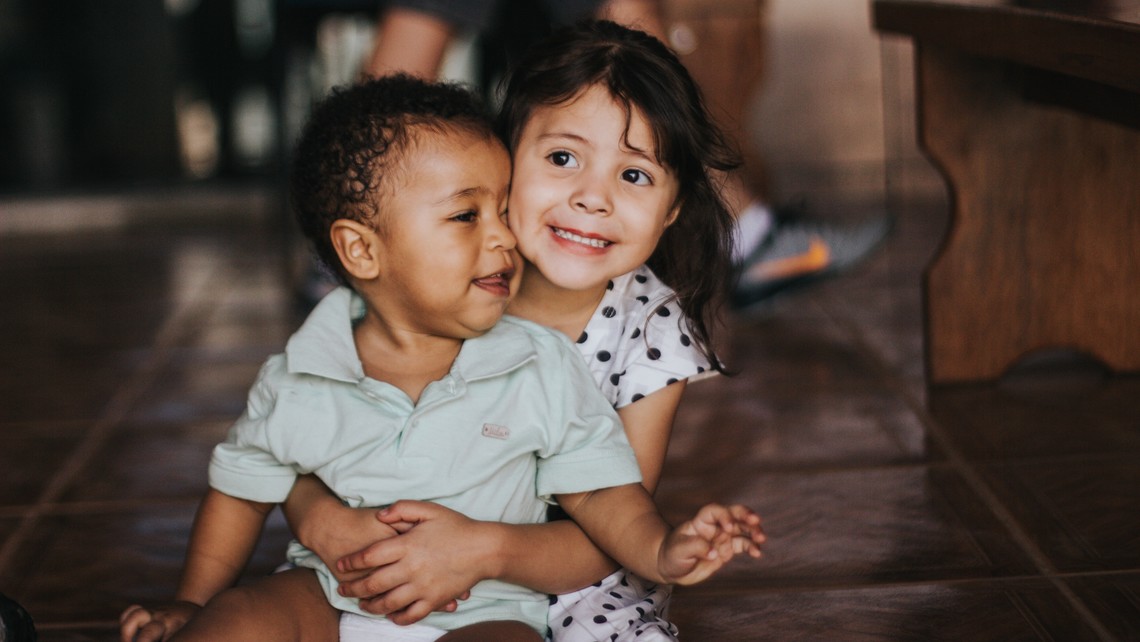
How do I build empathy in my children? My child seems unremorseful when he disobeys or hurts someone else. The first thing to take into consideration is what is the child’s age. If they are a toddler, their job is to push boundaries to see how they are different from their parents and explore their surroundings. The way you respond and set boundaries will be more providing specific consequences to set boundaries. For example, we don’t hit, if you hit you get no dessert or a timeout. For a few years this will be the mode of operation. Not to say you cannot introduce ways of building empathy and get them thinking about others, but for the most part kids at this stage will not look beyond themselves. They are programmed to get their needs met. We are born as narcissists, in order to ensure they meet their own needs, so be patient.
As kids enter the window of 6-10 years of age we can begin to help children develop the skill of empathy. At this time, they are creative and able to think a little more abstractly. Take time when they tell stories to have them hypothesize about the people in their story and how they are feeling. Or even tell a story from your childhood and ask them how they thought you were feeling. For example, “When I was your age I remember moving to a new school and my first day not being sure where I should sit for lunch...how do you think I felt? And what did I or someone else do to help?” This is something you can do with a lot of movies too. Pause what you’re watching and discuss what is going to happen next in a relationship or the impact of a character losing their cool. Children learn a lot through the experiences of others. If they are an older sibling, have them help and play with their siblings. Help them understand where their sibling is developmentally and attune to them.
So what do I do if my child has a younger sibling but is not empathic with them? If this is happening there seems to be some distance between the child and their sibling. It is hard not to be empathic with someone you know and love on a deep level, or colloquially “it is hard to hate someone up close.” Suggest that they listen to their sibling when they tell stories and paraphrase or summarize what they say. Again, have them try to get in the mind and heart of their sibling. When it is time for the brother or sister’s birthday ask them what they think their sibling would like as a theme or gift. Draw parallels between how the child has felt in the past and how what they have done might be impacting the emotions of their sibling. You can also try getting creative with their punishments. Have them write an apology letter and read it to their brother or sister, with one part of the letter highlighting how they think their actions affected their sibling. One of the best penances I have ever received is to do something nice for my wife. Similarly, you can have your kids do something nice in proportion to the negative interaction that transpired. We are looking for quality in these activities so demand that the apology or acts of love and service be thoughtful and proportionate. Also, help them see the benefit of treating their brothers and sisters well and how their negative response and the consequence naturally takes away from what they want to do. For example, if they feel their activities were interrupted by their little sister, then help them realize that letting their emotions dictate their actions did not allow them to get back to their desired activity, but naturally added to the time spent away (if it is not taken away all together) while they were repairing their relationship.
‘
Another area to evaluate is are these actions in some way a natural and understandable response? Is it in response to a natural need that is not being met? Is there something wrong with the environment and your relationship with your child that needs to be repaired or fixed. Are we treating our child differently? Are we giving them enough or equal attention, quality time, or gifts? If something is amiss, talk to them about it, acknowledge it, fix it and let your child know they are seen and heard without them having to hurt their sibling.
If there seems to be a lack of empathy for other people across the board, then this is an indication that it is time to seek professional therapy for your child as it might indicate a more expansive developmental or psychological need.
Peace
Mark



